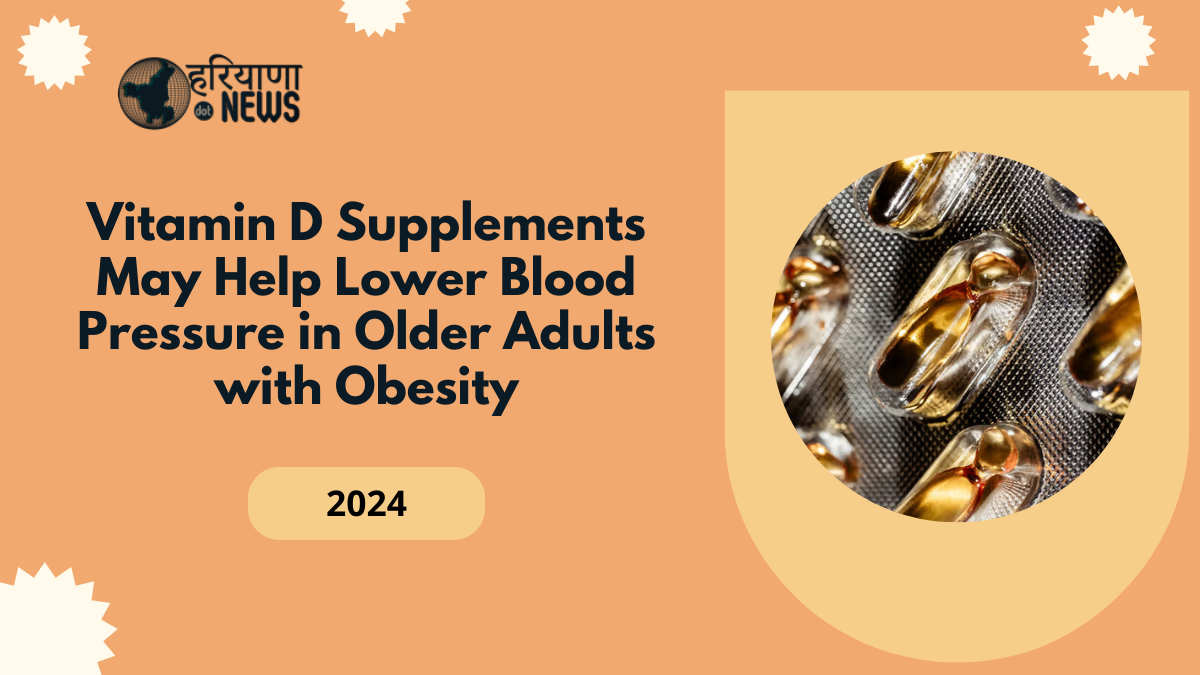A recent study, published on November 12, 2024, in the Journal of the Endocrine Society, suggests that supplementing with vitamin D along with calcium may help reduce blood pressure in older adults dealing with obesity, defined as having a body mass index (BMI) over 30.
Blood Pressure Decrease Observed with Vitamin D
According to the findings, these supplements were associated with reductions in both systolic (the upper value) and diastolic (the lower value) blood pressure. However, researchers noted that increasing the dosage did not result in stronger effects, implying that a moderate dose may be sufficient for blood pressure management in these individuals. All participants in the study had high blood pressure at the start of the research.
High Blood Pressure Standards
Per the American Heart Association, normal blood pressure is below 120/80 mm Hg. Any reading with a systolic pressure above 130 mm Hg or a diastolic pressure above 80 mm Hg is categorized as high blood pressure.
Study Links Vitamin D Supplementation to Blood Pressure Reduction in Older Adults
Involving 221 participants aged 65 and older, the study focused on those taking vitamin D supplements. All participants had BMIs over 25, qualifying them as overweight, and their blood tests showed serum 25-hydroxy vitamin D levels between 10 and 30 ng/mL. Vitamin D levels below 30 ng/mL are considered insufficient, and levels under 20 ng/mL indicate a deficiency.
Researchers tested two vitamin D doses—600 IU per day (the standard daily amount recommended by the Institutes of Medicine) and 3,750 IU per day—with both groups also taking 250 mg of calcium citrate. After a year, both groups showed statistically significant reductions in blood pressure, with systolic pressure decreasing by 3.5 mm Hg and diastolic by 2.8 mm Hg. Interestingly, the higher dose did not show additional benefit over the standard dose, with the greatest improvement seen in those with obesity and low initial vitamin D levels.
How Vitamin D Affects Blood Pressure
Dr. Reimas Geiga, a physician and clinical nutritionist with Glowbar LDN, explained that vitamin D can impact blood pressure through multiple pathways. “One main role is regulating calcium, which is essential for the contraction and relaxation of blood vessels,” he said. By enhancing vascular function, vitamin D may contribute to lowering blood pressure.
He further noted that individuals with obesity often experience low-grade, chronic inflammation, which negatively affects blood vessel health and can raise blood pressure. “Vitamin D has known anti-inflammatory properties, which might help counteract this issue,” he added. Additionally, those with obesity are more prone to vitamin D deficiency because fat tissue can store vitamin D, reducing its availability for the body’s use.
Dr Geiga also mentioned that sufficient vitamin D levels might lower the activity of the renin-angiotensin-aldosterone system, which is an important regulator of blood pressure. By influencing this system, vitamin D can further assist in maintaining healthy blood pressure levels.
 Discovering the Ultimate Benefits of Amla Oil for the Best Haircare Experience
Discovering the Ultimate Benefits of Amla Oil for the Best Haircare Experience
 Breast Cancer: Key Early Symptoms Women in Their 20s, 30s, and 40s Should Not Overlook
Breast Cancer: Key Early Symptoms Women in Their 20s, 30s, and 40s Should Not Overlook
 A 30-Minute Bodyweight Workout That Requires No Equipment: Are You Up for the Challenge?
A 30-Minute Bodyweight Workout That Requires No Equipment: Are You Up for the Challenge?
 50% of Delhi Government Employees to Work from Home Amid Alarming Air Pollution Levels, Announces Gopal Rai
50% of Delhi Government Employees to Work from Home Amid Alarming Air Pollution Levels, Announces Gopal Rai
 10 Health Benefits of Eating Spinach in Winter Daily Diet
10 Health Benefits of Eating Spinach in Winter Daily Diet





Is Vitamin D Supplementation Right for You?
Vitamin D is relatively easy to obtain, either through diet, supplements, or sun exposure, but Dr Rita Hawle, a clinical dietitian with ClinicSpots, emphasizes the importance of first confirming a deficiency. “A blood test can reveal whether low vitamin D may be affecting your blood pressure,” she explained. For those with low levels, supplements or safe sun exposure can gradually increase vitamin D.
Dr Hawle also advised that vitamin D supplementation should be part of a comprehensive approach to managing blood pressure. “Physical activity, a diet that supports heart health, and effective weight management are essential components of long-term blood pressure control,” she noted. Although this study explored doses of 600 IU and 3,750 IU, Dr Hawle recommends consulting with a physician to determine the safest and most effective dose for individual needs, as excessive vitamin D can cause a harmful buildup of calcium in the body.
“This research is promising,” she concluded, “but vitamin D should be incorporated within a holistic wellness strategy, especially for those managing obesity and high blood pressure.”
Key Takeaways
This study highlights that for older adults with high blood pressure and obesity, taking vitamin D along with calcium supplements was linked to reduced blood pressure over one year. The best outcomes were seen in participants with lower vitamin D levels at the start.
The reduction in blood pressure may be attributed to enhanced calcium balance, decreased inflammation, and reduced activity of the renin-angiotensin-aldosterone system. Experts recommend confirming a vitamin D deficiency through a blood test before beginning supplementation and discussing appropriate dosing with a healthcare provider. For sustained benefits, vitamin D supplementation should be part of a balanced approach, including a healthy diet, exercise, and weight management.
Click here to know more.






